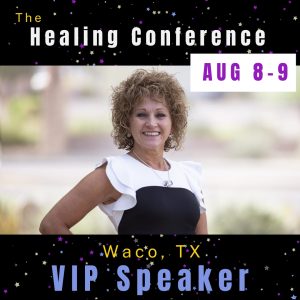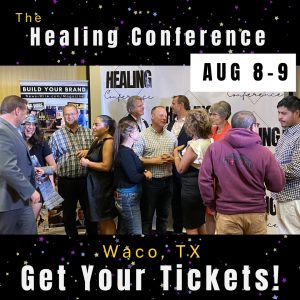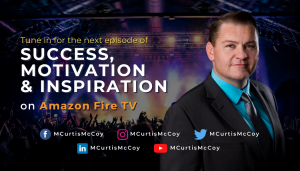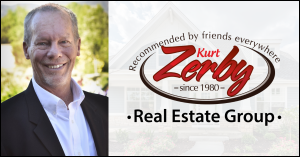At The Healing Conference in Grand Junction, CO, Brigham Blackham delivered an impactful speech, blending personal experience, powerful storytelling, and actionable frameworks to inspire attendees on their journey to healing and wholeness. Let’s dive into the core messages that resonated with the audience and left a lasting impression on approaching personal growth, faith, and self-empowerment.
The Meaning and Purpose of Life: Giving Your Gift Away
Brigham Blackham opened his talk with a thought-provoking quote by Picasso: “The meaning of life is to find your gift; the purpose is to give it away.” He reflected on his mission of helping others “level up,” challenging attendees to look inward and recognize the unique gifts they hold. Brigham’s approach aims to bring out the best in others by pushing them beyond their comfort zones and probing for a deeper understanding of their potential.
The Essence of Healing
Using a story from scripture, Brigham Blackham explored what it truly means to heal. He shared the biblical story of a woman healed by her faith after touching Jesus’ garment, highlighting that true healing is physical and spiritual. Blackham connected this story to the Chinese character of “healing,” which combines symbols for sickness and wholeness. By removing the sickness from our lives—whether physical, emotional, or mental—we can achieve wholeness, a primary goal of the conference.
Four Key Areas of Growth: Wisdom, Stature, Favor with God, and Favor with Man
Brigham Blackham introduced a framework inspired by the scripture Luke 2:52, which outlines four areas of growth: wisdom, physical health, spirituality, and community. He emphasized the importance of balance, suggesting that we need growth in all areas to achieve a fulfilling life. By leveling up each area, we improve ourselves and become better equipped to help others.
SWAP: A Framework for Personal Transformation
One of Brigham Blackham’s main frameworks, “SWAP,” offers a structured approach to transformation:
- Specific – Define precisely what you want to change.
- Worthwhile – Ensure the goal is meaningful and deeply important.
- Appreciate – Recognize the ongoing value it will bring, enhancing your life.
- Positive Movement – Emphasize continuous, forward progress.
Brigham Blackham used his weight-loss journey as an example, explaining how he moved from being overweight and battling GERD (gastroesophageal reflux disease) to adopting a healthier lifestyle through specific, worthwhile, and appreciative actions that resulted in positive movement.
The Power of Words and Self-Talk
“Your words create your reality,” Brigham emphasized. He urged attendees to pay attention to the language they use about themselves, noting that negative self-talk is a “sickness” that holds people back from wholeness. By consciously swapping out limiting beliefs and negative words for affirmations and constructive narratives, we can transform our mindset and, ultimately, our lives.
Embracing Empathy: The Strength Found in Weakness
Brigham Blackham shared a Chinese saying, “To be sick for a long time is to become a great physician.” This phrase reflects that those who experience adversity can develop empathy and wisdom, allowing them to guide others through similar struggles. He called on attendees to embrace their stories, including their pain and challenges, as valuable tools for helping others heal.
Self-Responsibility: Heaven Helps Those Who Help Themselves
Brigham Blackham reinforced the idea of personal responsibility by quoting another Chinese idiom, “Heaven helps those who help themselves. ” While faith and external support are essential, he reminded attendees that they must also take proactive steps toward their goals. Blackham underscored that meaningful change requires both divine assistance and personal effort, whether through a story of resilience or a tale of answered prayers.
The Infinite Loop of Growth: Personal, Community, Vitality, and Professional Life
Brigham described the interconnectedness of personal life, community, health, and professional growth as an “infinite loop” of continuous progress. He noted that humans are meant to keep growing like trees that grow as tall as they can. Stagnation, he argued, is a form of “damnation”—a halt in progress. By nurturing every aspect of our lives, we can keep moving forward individually and collectively.
Opposition as a Teacher
In reflecting on life’s challenges, Brigham Blackham cited 2 Nephi 2:11, which speaks to the necessity of opposition in all things. He shared experiences from his missionary work and performances in front of large audiences, where he encountered vocal opposition. Instead of seeing these obstacles as deterrents, Brigham reframed them to validate his efforts. He urged the audience to view setbacks and resistance not as signs of failure but as essential growth elements.
Sharing Your Story: A Responsibility to Heal Others
According to Blackham, sharing one’s story is an act of service. He challenged attendees to see their life experiences, especially their struggles, as tools to help others. Holding back our stories, he argued, is a form of selfishness, as others may find healing and inspiration through our honesty and vulnerability.
Moving Forward with Faith and Purpose
In concluding his talk, Brigham Blackham left the audience with a call to action: identify the “sickness” in your life—negative self-talk, unhealthy habits, or limiting beliefs—and swap it out for something great. With each positive change, we move closer to wholeness. By finding balance across all areas of life, fostering empathy, and sharing our stories, we can make an impactful difference in our lives and those around us.
Final Thoughts: Living in Wholeness
Brigham Blackham’s talk at The Healing Conference reminded us that healing is an active, ongoing process. Through faith, personal responsibility, and a commitment to holistic growth, we can achieve wholeness and inspire others to do the same. By swapping out negativity for greatness and living in alignment with our purpose, we not only heal ourselves but also become catalysts for change in our communities.







